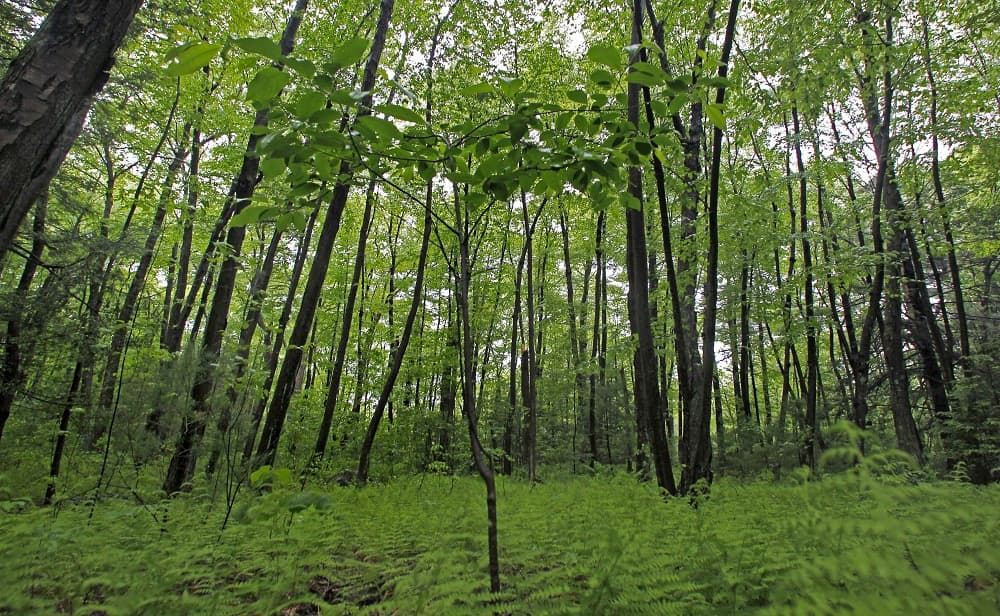Forests, Deserts, Policies and Climate

Photo Source: Creator-Charles Krupa | Credit - AP | Copyright - AP2010
Forests are a natural and crucial carbon sink, providing significant environmental and economic value. Their ability to absorb carbon dioxide makes them key to many conservation, management, and restoration activities as nature-based solutions for climate (NbCS). Supported by and in collaboration with members of the Salata Institute for Climate and Sustainability at Harvard University, the Energy Policy Institute at the University of Chicago (EPIC), and the Key Laboratory of Desert and Desertification, Chinese Academy of Science, I am conducting a series of interdisciplinary research on the climate, economic, and environmental impacts of forest management.
My first line of work examines the market solutions, regarding forest-based carbon offsets traded on the growing carbon markets. Working with Harvard Forest, our working paper "Entry Choices and Performance of Forest-Based Carbon Offset Projects in Regulatory and Voluntary Carbon Markets" is the first to empirically identify and summarize the characteristics and performances of improved forest management (IFM) projects in 20 north-eastern states in terms of carbon sequestration measured by ground-truth live carbon observations of U.S. Forest Inventory Analysis. We compare projects listed on California's regulated carbon offset market with those on voluntary markets and discover significant differences in biomass trends and forest management practices based on market entry conditions. Relative to geopotential-similar matched control forestlands, increasing pre-market biomass trends are found for projects traded on the regulated market to benefit from over 80% initial offset credit issuance, causing additionality concerns. On the other hand, decreasing trends of biomass are found for projects listed under the voluntary carbon market (VCM), representing shifts in aggressive harvesting in order to benefit from the voluntary market's gradual issuance rule. Through LANDIS/PnET forest simulations, we approximate the baseline and projection patterns of typical regulated market and VCM projects, estimate their total offset credit issuance and expected economic gains on either market, and predict their market entrance outcomes. In the meantime, our simulations highlight concerns about additionality and offset credibility, showing higher-than-historical baseline harvesting schemes on both markets create positive economic incentives for projects entrance and market growth. Then in the theory paper "The Efficiency of Carbon Offset Market and the Role of Rating Firms", we address the adverse selection problem in carbon offset markets, where corporation buyers lack sufficient information about offset quality known to project developers, resulting in low-quality offset equilibrium and additional reputation costs from end consumers or investors concerning about climate impacts. Our model demonstrates that introducing rating agencies and offset quality transparency required by the new federal rules can shift the market equilibrium toward higher-quality offsets, benefiting buyers, the public, and climate mitigation efforts.
My second line of research focuses on policy solutions to desertification control and forest coverage improvement in northwestern China. Firstly, we study the short and long-run environmental, health and socio-economic impacts of sandstorms directly caused by desertification in northwestern China, and explore how much the country's decades-long centrally planned forest preservation and restoration strategies have improved the situation. Using surface roughness and sand travel models to construct instruments representing district-level exposures to sandstorms, we will estimate the impacts of sandstorms over the past few decades on health, agriculture, consumption, labor, and income. Through these, we will estimate the effectiveness of multiple large-scaled desertification control policies, including the Three North Afforestation and Grain for Green. Secondly, we explore financial incentives for desertification control by encouraging interactions with the voluntary carbon market, particularly for shrub planting. This research aims to develop protocols for desertification-improvement projects and estimate the economic gains from such initiatives through randomized experiments on certifying desertification projects and providing signals to interested corporation buyers.